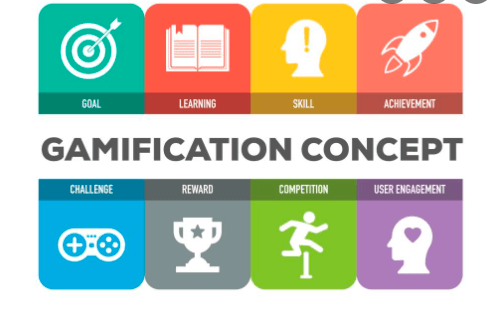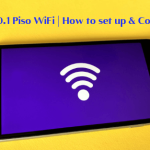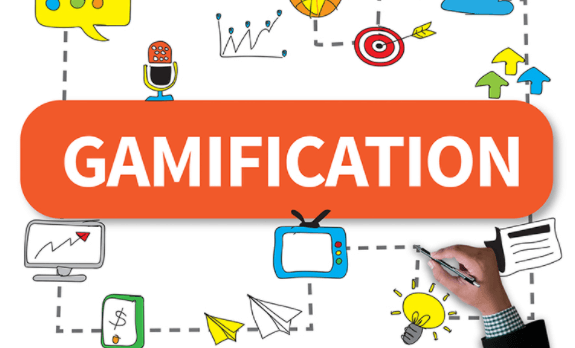Table of Contents
If the client does not respond to the standard USP, use game mechanics. Invite him to earn points, collect chips and win. For Adobe, NBC, Ford, and eBay, the use of gamification technology has helped increase user engagement by an average of 30%.
Gamification: what it is and why it works
The definition of gamification is quite simple – it is a business tool that involves the introduction of game elements into non–game projects.

It brings everyday and routine processes (promotions, discounts, loyalty programs) into an interesting gaming environment.
Contests, quests and missions stimulate the growth of the client base, help to increase the average check and “tie” the client to the brand.
In order to implement a full–fledged gamification strategy in your business, you can create a real game with the help of game development services.
Gamification happens:
- internal – for employees.
- external – for clients.
How to bring gamification to your business
If you have been inspired by examples from other companies and decided to try gami cation in your business, here are some steps to take.
- Define goals. Decide what you need gamification for: increase customer loyalty, increase sales, motivate employees. Write down your goal in measurable terms. For example, “increase the number of customers by 15%,” “increase repeat sales by 20%,” etc.
- Think over the game mechanics. Decide what actions the client should take in the game so that they lead to the set business goals. For example, you have a coffee shop and you want to motivate the person to buy more coffee from you. Then you decide that for every cup of coffee you buy, you will be given a small sticker. If the client collects 5 of these stickers, he will receive a coffee with a croissant as a gift.
- Come up with a relevant concept. You can focus on issuing stickers or points for purchases, or you can develop a whole game concept. For example, based on a famous movie, TV series or game. This is what McDonald’s did by launching the Monopoly game based on the board game of the same name. Only instead of paper money and property, participants can win real real estate, travel and other valuable prizes. To get into the game, you need to buy eligible products and collect stickers.
- Implement and test. Make up the conditions for participation in the promotion, tell your customers about the game on the website, in mailing lists and social networks. Notify employees about the game. To measure the results, break the game into stages and imagine it as a sales funnel – from acquiring a customer to completing a targeted action.
Must Read: Tips On How To Win Online Games
Principles of Good Gamification
Based on the portraits of customers or employees, decide what types of attraction you will use in your game mechanics.

Design researcher Jason Tocchi identifies five types of rules:
- Achievement is to fight, get a reward, achieve a better result, try your luck.
- Imagination is a fantasy element, pretense, role play, exploration.
- Socialization – socializing, working in a team.
- Rest – to put in order the mind, emotions, relax.
- Subversion – breaking the rules, playing outside the script, using game elements for other purposes, taking advantage of bugs in the game, playing against teammates.
- The bait “socialization” will be useful in games for employees – corporate spirit, collaboration, and so on. You yourself have probably often met the bait “achievement“: for example, when the more points you collect for purchases, the higher the discount you earn. Levels are important in it – achievement should be a clear point with clear rewards.
The rarest bait is “subversion“, it is more likely for real games. However, it can also be used if you want to motivate employees for unconventional thinking and creative projects. The very fact that it will be possible to work outside the rules can push the staff towards new solutions.
So that you don’t waste time and the game resonates with your customers, follow these simple guidelines:
- Easy start. The user does not need to solve puzzles to take part in the game. Entering the game should be simple and straightforward, for example, registering in the application.
- Achievability of goals. Make short intervals between goals so that the user does not get frustrated with the game. Give small prizes as the client moves towards the main goal.
- Competition. Set user ratings, show real winners.
Must Read:How to Run a Content Agency with Full-time Employees
Books on gamification in business
If you want to introduce gamification into your business, you will probably be interested in books on this topic:
Engage and Conquer: Game Thinking in the Service of Business. Kevin Werbach and Dan Hunter;
“Gamification in business. How to break through the noise and grab the attention of employees and customers. ” Gabe Sickermann and Jocelyn Linder;
Actionable Gamification – Beyond Points, Badges, and Leaderboards. Yu–kai Chou;
Also, with especially creative approaches to developing a game for this strategy, this link can help you: https://whimsygames.co/services/mobile–development/;
Gamify: How Gamification Motivates People to Do Extraordinary Things. Brian Burke;
Gamification by Design: Implementing Game Mechanics in Web and Mobile Apps. Gabe Zichermann.















